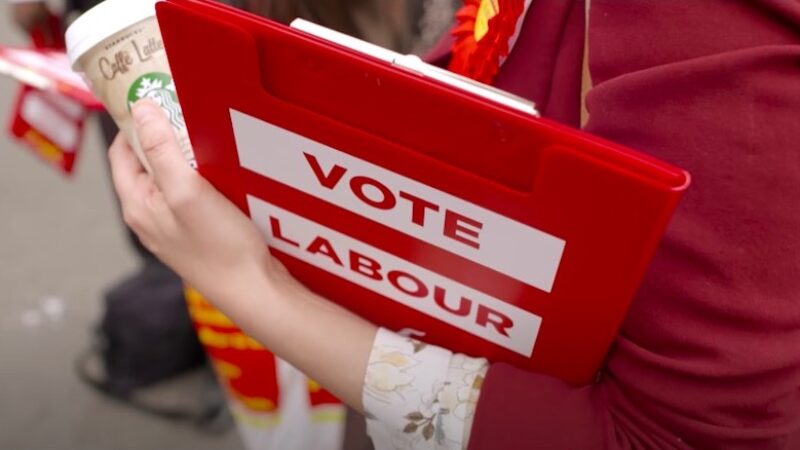
Labour Together’s 2019 general election report is an important and impressive piece of work that correctly identifies both the short-term factors and long-term trends behind our party’s worst defeat since the 1930s. It rightly attributes the loss to Jeremy Corbyn’s lack of popularity, Labour’s confused Brexit position, and a bloated manifesto that simply wasn’t credible when taken as a package despite containing some popular policies. It also recognises Labour’s long-term decline in support amongst older voters, in towns, and from people who left education at the age of 16. And, importantly, it points out how social conservatives have been moving away from Labour over the past decade.
This analysis is critical. In 2018, Stephen Kinnock and I wrote about divides in age, education, place and culture at length in Spirit of Britain, Purpose of Labour – a book that featured contributions from a range of Labour MPs and thinkers, and was designed to wave a red flag about what might be to come. We described ‘communitarians’ rather than social conservatives, because the majority of non-Labour voters aren’t inherently illiberal or anti-progress – they just typically tend to put more value on familiarity, security, stability and community than the liberal, individualist, rights-focused graduates who are so influential in the Labour Party.
Increasingly, we are seeing a radical left, largely situated in big cities, pulling so far ahead of the rest of the country that the agenda becomes alien to most people. It’s time for campaigners to examine whether it is useful to label voters as ‘socially conservative’ whenever they challenge the radical left’s positions on issues such as sex and gender, historic statues or offensive comedy. Regressive, anti-minority viewpoints are out there, but they do not represent the majority.
What is perhaps most critical in the report, but explored in little detail, is how patriotism and national identity will be core to winning over voters outside of Labour’s left, liberal comfort zone. Labour Together’s review rightly concludes that national pride, place and family will be critical to building the coalition that Labour needs. But it stops short of telling Labour the brutal truth: the party has been seen as unpatriotic for at least a decade and has had no idea how to talk about national identity.
Any political party that wants to govern simply must show that they believe in Britain as a force for good in the world. Corbyn failed massively here. His response to the Salisbury poisonings and his dithering over NATO were indicators that he could not pass that test. The report mentions “national security” once, and references a woman calling Corbyn a “terrorist sympathiser”, but could have done far more to illustrate the broader lesson that patriotism will be a critical ingredient to any future electoral success.
Some on the left try to reframe ‘patriotic’ to mean adoring British institutions like the NHS and the welfare state. But Labour does not get to choose the non-negotiable foundations of patriotism – strong on security, defence and crime and a willingness to fight Britain’s corner on the global stage. And if we fail on these measures, we understandably lose the right to be heard on pretty much any other issue. Not that any of this should really be a problem; these basic facets of patriotism should go hand in hand with Labour’s historic internationalist values.
Labour is uncomfortable enough with British identity – but when it comes to English and Scottish identities, the party fares even worse. In 2015, the Scottish nationalist surge stunned Labour, but the 20-year decline in England amongst votes who identify as ‘strongly English’ or ‘more English than British’ has largely gone unnoticed – despite the damage caused at the ballot box.
The English Labour Network’s submission to Labour Together illustrated how Boris Johnson’s gains in the 2019 election came almost entirely in England, and almost entirely from voters who see themselves as ‘more English than British’. The report fails to reflect on this damaging trend, which has had an impact far wider than party politics.
England outside the major cities – particularly ‘English more than British’ identifiers – delivered Brexit. Meanwhile, we’ve seen English culture captured by the far right, particularly at the recent so-called ‘counter-protest’ in Westminster. But the left need not surrender Englishness in that way. There is an inclusive England out there for Labour to shape, reflected by England’s multi-ethnic sports teams and the fact that 90% of England knows you don’t need to be white to be English.
Now, as we enter a new decade that will be defined by the coronavirus recovery, it is time for Labour to shape a new, positive and inclusive national story for England. Labour must be willing to engage with English people, English identity and English political issues. We should start by saying ‘England’ when we mean England, by delivering an English manifesto at the next election to sit alongside the Welsh and Scottish manifestos, and by developing a new plan for the governance of England – the most centralised nation in Europe.
Keir Starmer has stressed on a couple of occasions recently that he is deeply patriotic, so it feels as if our party is moving in the right direction. Yet another crucial message from the Labour Together report is that elections are won over four years, not four weeks. This is about the mood music around Labour, as much as policy, so shifting the party’s language and approach to national identity in the longer term will be important. We have a mountain to climb, but if we are honest about the challenges and requirements it need not be insurmountable.




More from LabourList
‘I was wrong on the doorstep in Gorton and Denton. I, and all of us, need to listen properly’
‘Why solidarity with Ukraine still matters’
‘Ukraine is Europe’s frontier – and Labour must stay resolute in its defence’